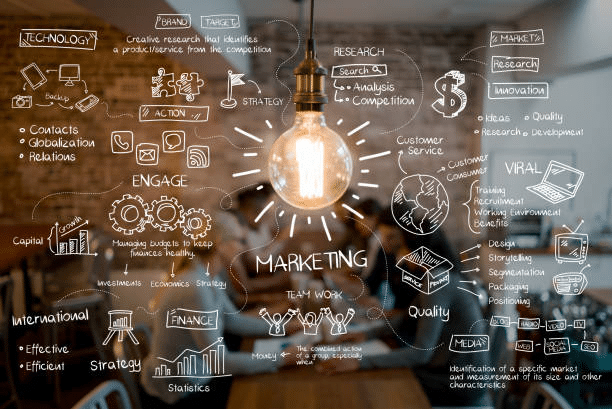Artificial intelligence (AI)I is changing how companies work, and marketing is not exempt. AI marketing tools provide unique insights and automation. It results in more customized digital marketing campaigns, better customer engagement, and higher returns on investment. As the digital world keeps changing, using AI marketing software becomes more influential for businesses to stay competitive and grow.
This article will discuss AI marketing tools that change the marketing field by using advanced algorithms to automate work, study data, and improve strategies.
What Are AI Marketing Tools?
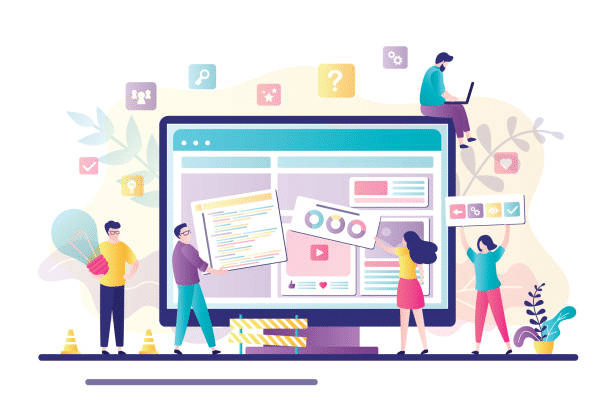
AI marketing tools are software that uses AI to simplify marketing work and boost efficiency. They examine data, spot trends, and forecast results, helping businesses make better marketing decisions. These tools aid in creating content, categorizing customers, handling social media, and email marketing, among other things.
These AI marketing solutions save time and improve results. They allow businesses to focus on strategy while the tools handle routine tasks. With AI marketing tools, companies can stay competitive and grow in today’s fast-paced digital world.
When Should Businesses Use AI Marketing Tools?

Companies should think about using AI marketing tools in these situations:
- When they aim to boost customer involvement with tailored marketing efforts, AI marketing tools can help create personalized content and offers, making customers feel more connected to the brand.
- Suppose they need to examine lots of data fast and precisely. AI tools can process massive amounts of information, finding patterns and trends humans might miss.
- When they want to save time and resources by automating routine tasks, AI marketing tools can handle tasks like email scheduling, social media posting, and data analysis, freeing up time for marketers to focus on AI marketing strategy
- Assume they want to improve their marketing plans by using data-driven insights. AI tools can analyze data and provide valuable information, allowing companies to adjust their marketing strategies for better results.
How Do AI Marketing Tools Work?

AI marketing tools use several key techniques, such as machine learning, natural language processing, and data analysis. Here’s a more detailed explanation:
Machine Learning
AI marketing tools use machine learning to study data and improve their performance over time. They “learn” from the data they process, enhancing their ability to recognize patterns and predict outcomes. As they work with more data, their predictions become more accurate.
Natural Language Processing (NLP)
Some AI in marketing tools use NLP to understand and create human-like text. It allows them to generate content, like blog posts or social media updates, and interact to engage customers through chatbots. NLP helps make AI-generated content more engaging and relevant to the target audience.
Data Analysis
AI marketing tools analyze large amounts of data from various sources, such as customer interactions, website traffic, and social media activity. They use advanced algorithms to process this data, identifying patterns and trends that can inform marketing decisions.
Integration With Existing Platforms
AI marketing tools often integrate with popular marketing platforms, like email marketing services and customer relationship management (CRM) systems. This integration allows businesses to access AI-generated insights and automate tasks within their existing workflows, streamlining the marketing process.
Benefits Of AI Marketing Tools

Better Customer Involvement
AI marketing tools assist companies in making custom content for their customers. This personalized approach makes customers feel valued and understood, increasing happiness and loyalty.
Saving Time And Resources
Automating tasks with AI allows marketing professionals to spend their time on essential strategies instead of routine work, making their digital marketing efforts more efficient and productive.
Data-driven Insights
AI tools examine data and provide valuable knowledge, assisting businesses in making informed marketing decisions based on accurate information rather than guesswork.
Adaptability
AI marketing tools can easily adjust to market changes and manage large amounts of data, allowing companies to respond quickly to changes and remain competitive in the ever-changing digital environment.
Limitations Of AI Marketing Tools

High Initial Investment
Implementing AI marketing tools can require a significant upfront investment in technology and training, making it challenging for small businesses or those with limited budgets to get started with these tools.
Data Quality And Privacy Concerns
AI marketing tools require access to vast amounts of data, which can raise privacy concerns and require strict data management practices to ensure data quality, security, and compliance with regulations.
Overreliance On Technology
While AI marketing tools can streamline processes and improve efficiency, an overreliance on these tools can result in companies losing the ability to connect with customers personally. It can negatively impact customer satisfaction and loyalty.
Examples Of AI Marketing Tools
Content Creation Tools
These AI marketing tools use natural language processing and machine learning to generate engaging and relevant content for marketing channels such as social media, blogs, and websites.
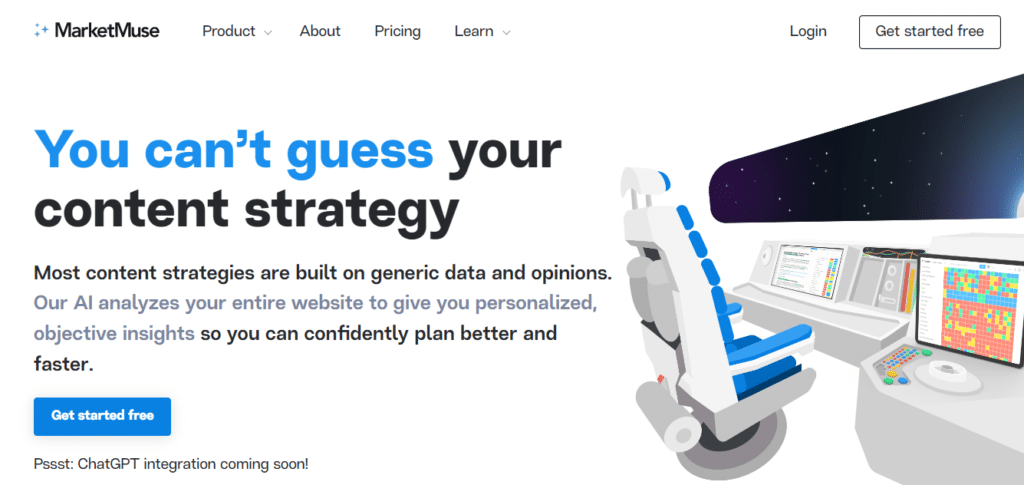
This AI marketing tool uses AI to analyze content, identify gaps and opportunities for improvement, and provides recommendations to optimize content for search engines and target audiences. It offers different pricing plans starting at $149/month.
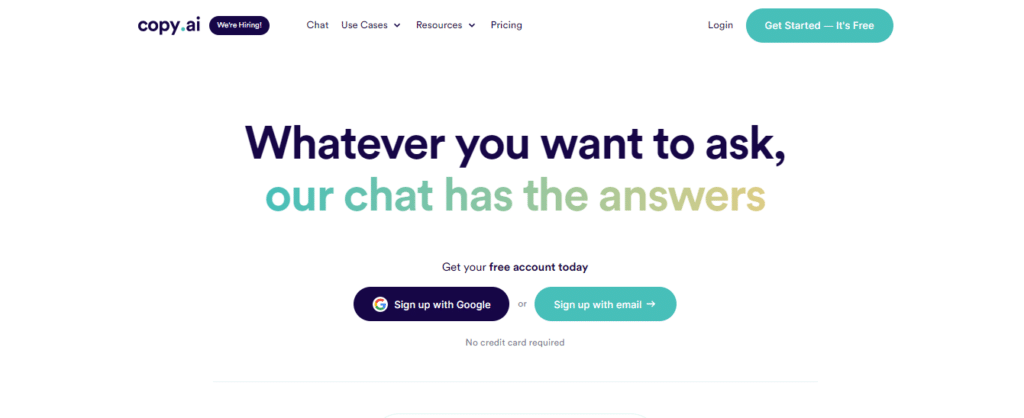
This tool uses machine learning to create engaging and relevant content for social media, ads, emails, and other marketing channels. It offers different pricing plans starting at $36/month.
Customer Segmentation Tools
These tools use data analysis to group customers based on their behavior and preferences, allowing businesses to tailor their marketing efforts and messaging to specific segments.
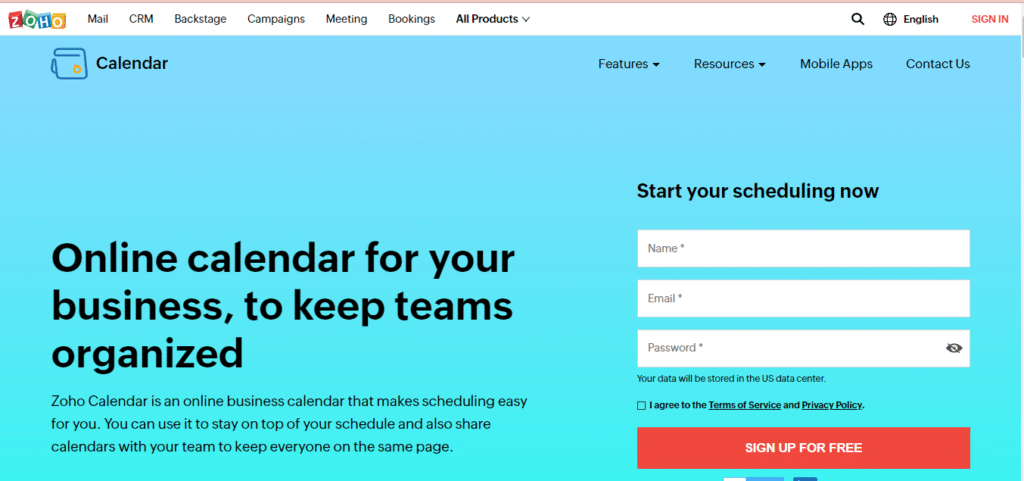
This tool uses machine learning to analyze customer data and segment them based on their behavior, preferences, and interests. It offers different pricing plans starting at $14/user/month.
HubSpot
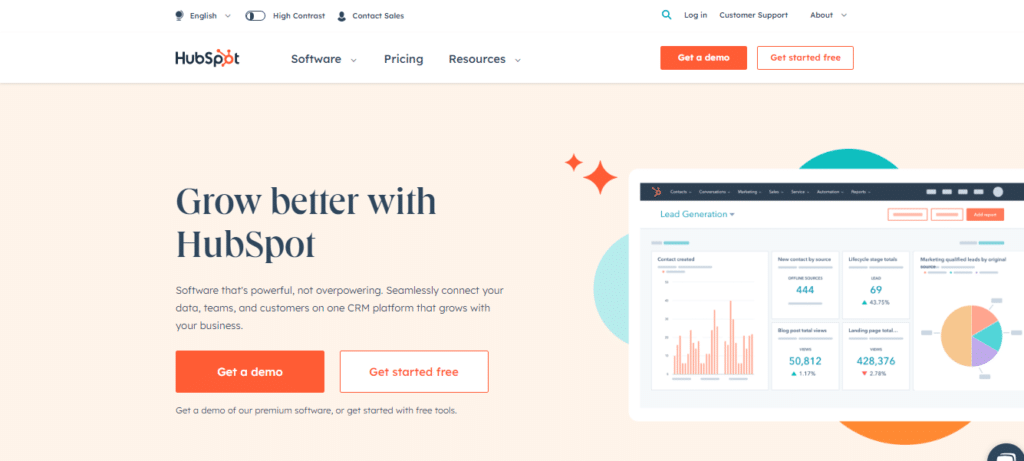
This tool offers a suite of customer segmentation tools, including email segmentation, lead scoring, and contact segmentation. It also offers different pricing plans starting at $30/month.
Social Media Management Tools
These tools use AI algorithms to schedule, publish, and analyze social media posts, identify key influencers, and monitor brand mentions and sentiment.
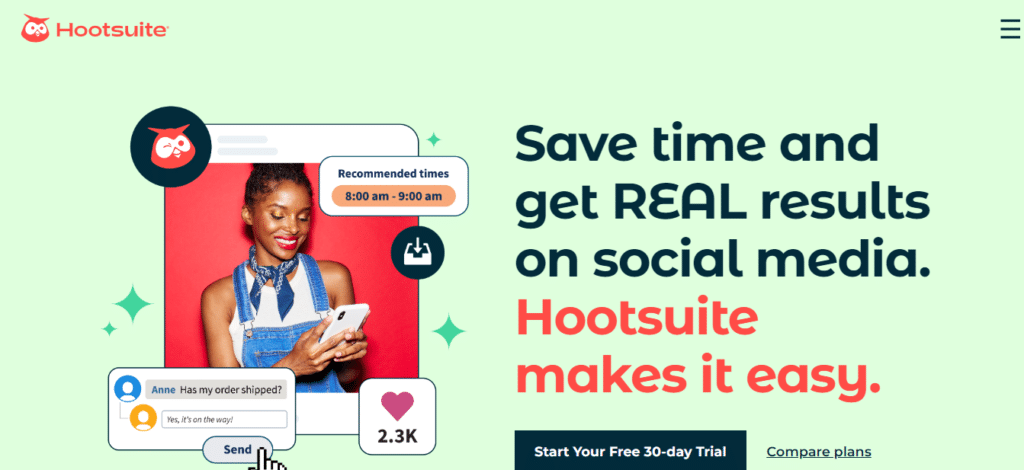
This tool allows businesses to manage multiple social media accounts, schedule and publish posts, analyze social media engagement, and track mentions and sentiment. It offers different pricing plans starting at $99/month.
Quickly and easily show which campaigns drive the most leads and conversions with Advanced Analytics. Plus, view your organic, paid, and web metrics in one dashboard.
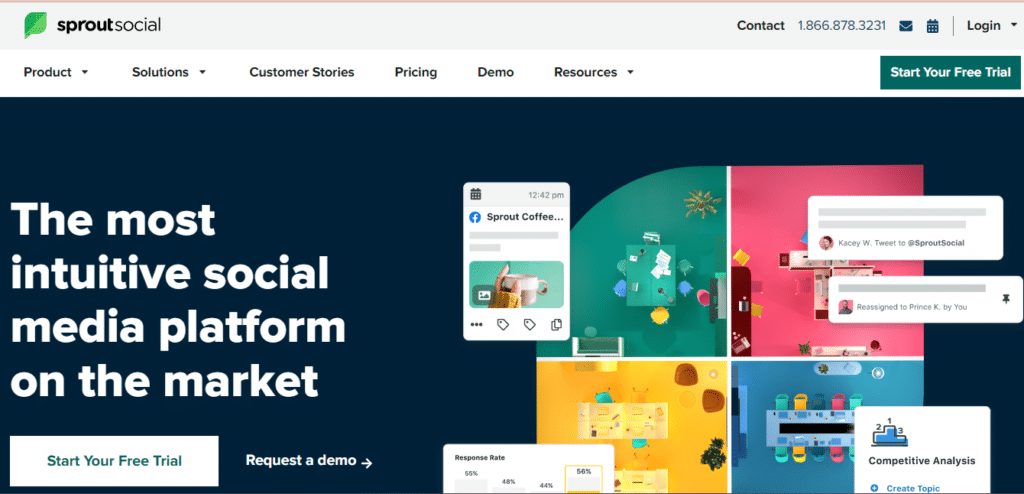
This tool offers a suite of social media management tools, including scheduling and publishing, social listening, and predictive analytics. It also allows businesses to collaborate on social media campaigns and manage customer service inquiries. It offers different pricing plans starting at $99/month.
Discover the most robust and cohesive social media business solution, built to scale. Upgrade as you grow or cancel anytime.
Email Marketing Tools
These tools use machine learning to optimize email campaigns based on recipient behavior and engagement, including subject lines, content, and timing.
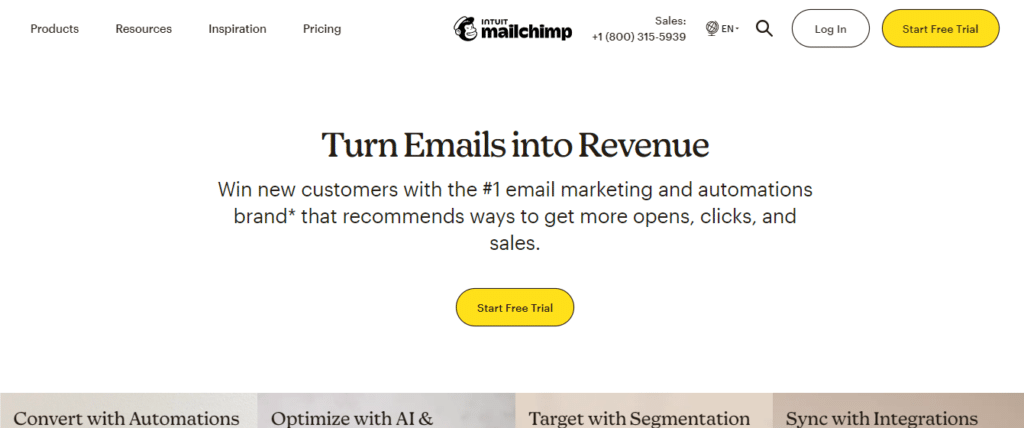
This tool offers email marketing tools, including customizable email templates, automation workflows, and detailed analytics. It also provides advanced segmentation and personalization features based on subscriber behavior. It offers different pricing plans starting at $13/month.
Constant Contact
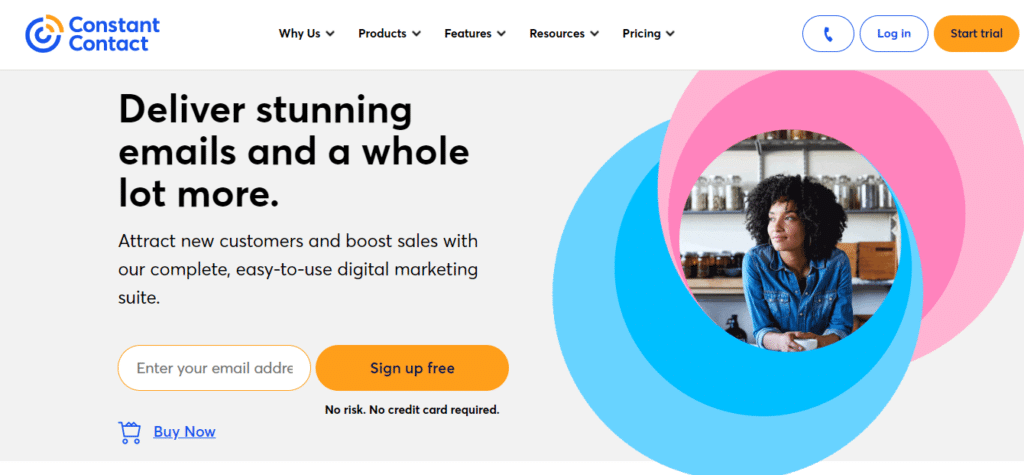
This tool offers an easy-to-use email marketing platform with customizable templates, automation workflows, and detailed analytics. It also provides list management and segmentation features to optimize email campaigns and targeted advertising. It offers different pricing plans starting at $12/month.
FAQs
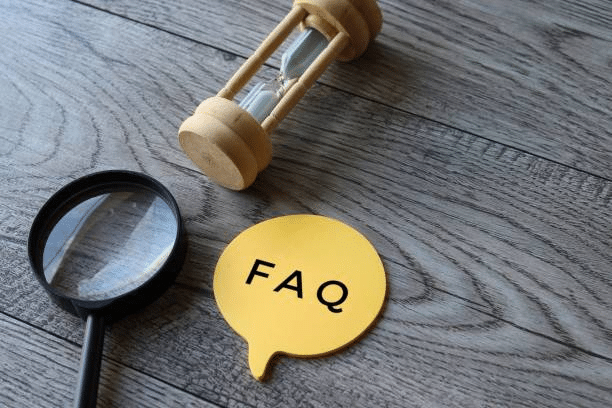
How can businesses ensure the responsible use of AI marketing tools?
To ensure the responsible use of AI marketing tools, businesses should:
Regularly review and update AI algorithms to minimize bias and discrimination.
Maintain a balance between automation and human interaction in marketing activities.
Implement data privacy policies and practices to protect customer information.
Continuously educate employees on ethical AI use and its implications.
Are AI marketing tools expensive?
The cost of AI marketing tools varies depending on the features, scale, and provider. Some tools offer tiered pricing or customizable packages to fit different budgets. Many providers also offer free trials or freemium versions, allowing businesses to test the tools before committing to a full subscription.
What are some potential challenges with using AI marketing tools?
Some potential challenges include the need for significant amounts of data to train machine learning algorithms, the potential for bias in the data and algorithms, and the need for skilled personnel to manage and interpret the results of AI marketing tools.
How can businesses ensure the ethical use of AI marketing tools?
Businesses can ensure the righteous use of AI marketing tools by being transparent about their service, ensuring data privacy and security, and addressing any potential biases in the data and algorithms. They should also regularly monitor and evaluate the impact of AI on their marketing strategies and customers.
How can businesses measure the effectiveness of their brand language optimization efforts?
Businesses can measure the effectiveness of their brand language optimization efforts by tracking metrics such as website traffic, engagement rates, brand recognition, and customer feedback. They should also conduct regular audits and evaluations of their brand language to identify areas for improvement.
Traffic, engagement rates, brand recognition, and customer feedback. They should also conduct regular audits and evaluations of their brand language to identify areas for improvement.
Final Thoughts

AI marketing tools have started a new marketing phase by offering fresh ways for businesses to better connect with and understand their target audiences. These tools cover many marketing tasks, like data analysis, content creation, customization, customer grouping, and future predictions.
As businesses use AI marketing tools, staying current with new trends, dealing with ethical concerns, and maintaining data privacy rules are essential. By using AI marketing tools well and responsibly, businesses can improve their marketing plans and gain a competitive edge in the digital world.

